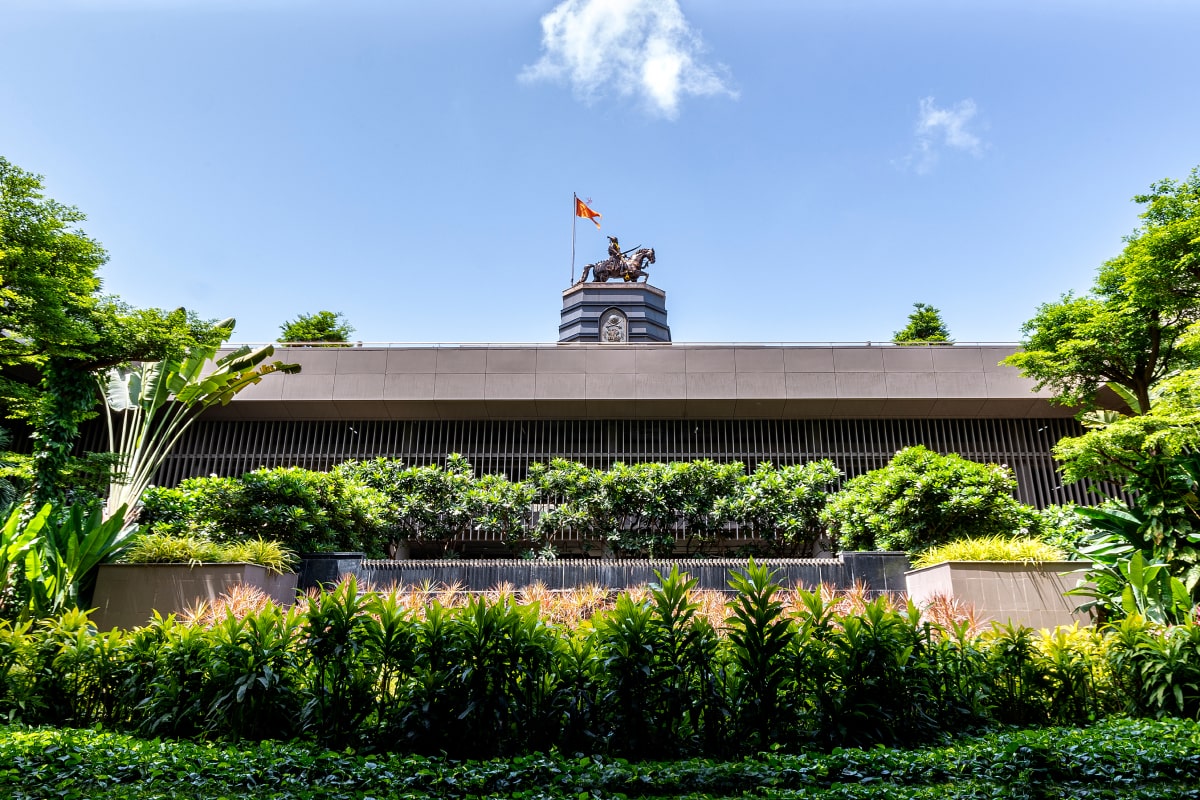Building a Greener Legacy
At AAHL, we have always been dedicated towards fulfilling our environmental obligations and strive to be a responsible organisation that is conscious of its impact on the broader society and future generations. Our environmental priorities span a wide range of target areas.

Energy Management
Environment management is integral to our IMS system at all our airports. We align our strategy with business needs to meet environmental standards, following all applicable laws. Our airports boast certified Environment Management systems (EMS) for efficient environmental performance monitoring. With a commitment to top-notch passenger facilities and reduced environmental impact, we conserve energy, promote renewables, and optimize energy usage to lower costs and carbon footprint. Mumbai and Thiruvananthapuram airports have adopted ISO 50001:2018 Energy Management systems, focusing on resource efficiency. Mumbai International Airport Limited has set a remarkable example, using green energy entirely, making it one of India's 100% sustainable airports in our journey towards net-zero emissions.
Sustainability Stories & Reports

Decarbonisation

Measure
- Carbon footprint in accordance with ISO14064 standards, the Greenhouse Gas protocol (GHG protocol) and the ACI Airport Carbon Accreditation (ACA) methodology
- Year on year emissions reporting

Manage
- Emissions monitoring and reporting
- Strategy and roadmap/plan – long & short-term plans

Reduce
- Emission reduction measures/initiatives
- Emission reduction targets

Communicate
- Workshops and trainings
- Regular employee and stakeholder engagement to increase environmental awareness
Our decarbonisation initiatives include:
- Conversion to Lower Global Warming Potential (GWP) Refrigerants - helped us achieve achieving a 62% reduction in carbon emissions (~1010 tCO2e)
- Installed 32 Electric vehicle charging stations with 24 EVCs on landside and 8 EVCs on Airside.
- Conversion to Non-CO2 Type Fire Extinguishers
- We continuously monitor the ambient air quality at our airports by MoEf and pCB-approved Environment labs.
- CSMIA is installing an air quality monitoring board for real-time air monitoring.
Sustainability Stories & Reports

Water Stewardship
Our sustainable water management initiatives include:
- Ground water recharging pits are maintained as part of rainwater harvesting AMD: 41 Pits, JAI: 20 Pits
- Recycling of treated wastewater for cooling, landscaping and washing among others
- Installation of sensor-based water taps in washrooms
- Dry cleaning of solar panels instead of water wash which saves about 5KL of water per month
- We employ electromagnetic water flowmeters to measure and monitor water consumption. This identifies areas where water conservation techniques like efficient plumbing fixtures and waterless urinals can reduce freshwater use
- Water Recycled across Our Airports - 2,03,550 KL
- Our airports use technology-driven sewage treatment plants (STPs) to treat wastewater from terminals, airside, landside, and cargo facilities. The treated water is repurposed for restrooms, cleaning, and HVAC in terminal buildings, minimizing freshwater consumption and maintaining water quality. CSMIA leads in recycling treated water to meet various operational needs.
- Mumbai's CSMIA leads with sustainable water management. As India's first airport to use waterless urinals, it has converted around 539 urinals, saving up to 100,000 liters of water daily, redefining cleaning and disinfection.
- Wastewater treatment is in action at AMD with a 500KLD Sewage Treatment Plant (STP) operational at SVPIA. We've installed a fluidized Media Reactor on-site to manage domestic sewage generated within the airport premises efficiently.
- Ahmedabad and Mangaluru airports have partnered with CleanCart, offering a mobile car wash that uses only 1.5 liters of water in around 20 minutes. This eco-friendly initiative enhances the sustainability of our airports. CleanCart is portable with a 40-liter tank, capable of washing 25 cars on a single filling.
Sustainability Stories & Reports

Waste Management
Our airports have adopted and implemented an effective solid Waste management plan which includes:
- Collection & segregation of waste from the source
- Providing separate waste bins (for dry & wet waste) at all the locations including Airside, Landside & Terminals
- Well demarcated four waste collection points are established, where the segregated waste is collected, shifted to waste yard situated at backend of the Airport
- Waste yard with proper spacing has been provided for further segregation of mixed waste
- Recycling of major portion of solid waste generated at site is carried out (constructed a 500 sq m shed to segregate all types of wastes and send to recyclers)
- All the waste after proper segregation is given to authorised agencies for further disposal for further handling
- Hazardous waste is managed inline to the Hazardous Waste Management Rules 2016
- Recovered 7,841 metric tonnes of waste through recycling. Our goal is to achieve "Zero Waste to Landfill" status by following the 5R principle
Sustainability Stories & Reports

Biodiversity and Wildlife Management
Our actions to prevent bird strikes include:
- Deploying bird scarers alongside runways with firecrackers to repel birds
- Cleaning drains and reducing the amount of water lying on the airport grounds
- Introducing the pyrotechnics technology and acoustics to scare away birds
- Eliminating bird attractants from the airfield and its surroundings
- Ensuring habitat management to deter birds from coming to the airport
- Controlling garbage, waste, and rubbish disposal at the airport
- Ensuring rodent control at operational areas
- Fitting anti-perching spikes on all airside structures, such as signages, aerobridges, and lights
Non-destructive Wildlife Hazard Management techniques are practiced at SVPIA and as part of the same, organic chemical spray is carried out to control weeds & grass. Airside inspection is practiced at regular intervals and accordingly the wild animals such as langurs, monkeys, etc are relocated to the safer areas (forest areas) to protect them from any accidents.
Sustainability Stories & Reports

Green Building Initiatives and Certifications
We're dedicated to UN Sustainable Development Goals, especially SDG 7 (Affordable and Clean Energy), SDG 11 (Sustainable Cities and Communities), and SDG 13 (Climate Action). We're transforming with green building initiatives, earning accolades like ACI Green Airport Recognition in GOLD for environmental practices. ACA Level 4+ accreditation demonstrates our commitment. We're 100% single-use plastic-free since 2019, following Triple Bottom Line principles. Our Terminal 2 boasts innovative features like indoor planting, green walls, water features, earning LEEDs and IGBC certifications, showcasing our sustainability commitment. All our certifications can be viewed here.

